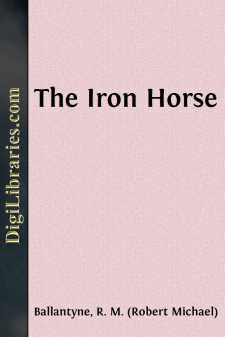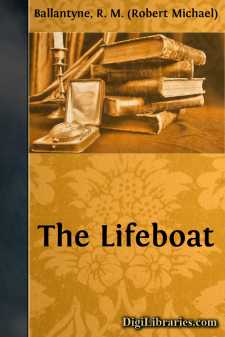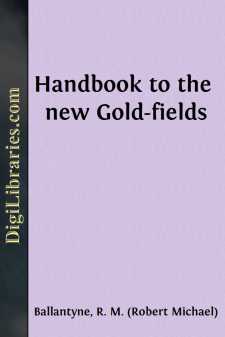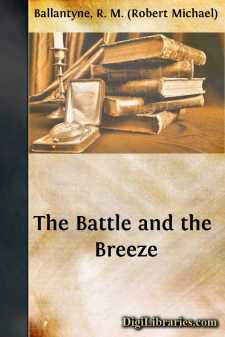Categories
- Antiques & Collectibles 13
- Architecture 36
- Art 48
- Bibles 22
- Biography & Autobiography 813
- Body, Mind & Spirit 142
- Business & Economics 28
- Children's Books 15
- Children's Fiction 12
- Computers 4
- Cooking 94
- Crafts & Hobbies 4
- Drama 346
- Education 46
- Family & Relationships 57
- Fiction 11828
- Games 19
- Gardening 17
- Health & Fitness 34
- History 1377
- House & Home 1
- Humor 147
- Juvenile Fiction 1873
- Juvenile Nonfiction 202
- Language Arts & Disciplines 88
- Law 16
- Literary Collections 686
- Literary Criticism 179
- Mathematics 13
- Medical 41
- Music 40
- Nature 179
- Non-Classifiable 1768
- Performing Arts 7
- Periodicals 1453
- Philosophy 64
- Photography 2
- Poetry 896
- Political Science 203
- Psychology 42
- Reference 154
- Religion 513
- Science 126
- Self-Help 84
- Social Science 81
- Sports & Recreation 34
- Study Aids 3
- Technology & Engineering 59
- Transportation 23
- Travel 463
- True Crime 29
The Iron Horse
Categories:
Description:
Excerpt
Treats of the Engine-Driver’s House and Household.
Talk of earthquakes! not all the earthquakes that have rumbled in Ecuador or toppled over the spires and dwellings of Peru could compare, in the matter of dogged pertinacity, with that earthquake which diurnally and hourly shocked little Gertie’s dwelling, quivered the white dimity curtains of little Gertie’s bed and shook little Gertie’s frame. A graceful, rounded little frame it was; yet strong, and firmly knit—perhaps in consequence of its having been from infancy so constantly and so well shaken together.
Her neat little body was surmounted by a head which no sculptor in search of an antique model would have chosen. Gertie’s profile was not Grecian; her features were not classic—but they were comely, and rosy, and so sweet that most people wanted to kiss them, and many people did. Gertie did not object. Probably, being only six, she imagined that this was the ordinary and natural method of salutation. Yet it was observable that the child did not reciprocate kisses except in one or two special cases. She had evidently a mind of her own, a fact which was displayed most strikingly, in the passionate manner in which she reciprocated the embraces of John Marrot, her father, when that large hairy individual came in of an evening, and, catching her in his long arms, pressed her little body to his damp pilot-cloth-coated breast and her chubby face to his oily, smoke-and-soot begrimed countenance, forgetful for the moment of the remonstrance from his wife that was sure to follow:—
“Now then, John, there you go again. You ain’t got no more power of subjewin’ your feelings than one of your own ingines, w’ich is the schreechin’ist, fizzin’ist, crashin’ist, bustin’ things I ever ’ad the misfortune to ’ave to do with. There’s a clean frock just put on this mornin’ only fit for the wash-tub now?”
But John was an easy-going man. He was mild, kind, sedate, undemonstrative by nature, and looked upon slight matrimonial breezes as being good for the health. It was only Gertie who could draw him into demonstrations of feeling such as we have described, and, as we have said, she always reciprocated them violently, increasing thereby the wash-tub necessity tenfold.
It would have been strange indeed if John Marrot could have been much put about by a small matrimonial breeze, seeing that his life was spent in riding on an iron monster with white-hot lungs and boiling bowels which carried him through space day and night at the rate of fifty miles an hour! This, by the way, brings us back to our text—earthquakes.
Gertie’s house—or Gertie’s father’s house, if you prefer it—stood close to the embankment of one of our great arterial railways—which of them, for reasons best known to ourself, we don’t intend to tell, but, for the reader’s comfort, we shall call it the Grand National Trunk Railway. So close did the house stand to the embankment that timid female passengers were known occasionally to scream as they approached it, under the impression that the train had left the rails and was about to dash into it—an impression which was enhanced and somewhat justified by the circumstance that the house stood with one of its corners; instead of its side, front, or back; towards the line; thereby inducing a sudden sensation of wrongness in the breasts of the twenty thousand passengers who swept past it daily....












